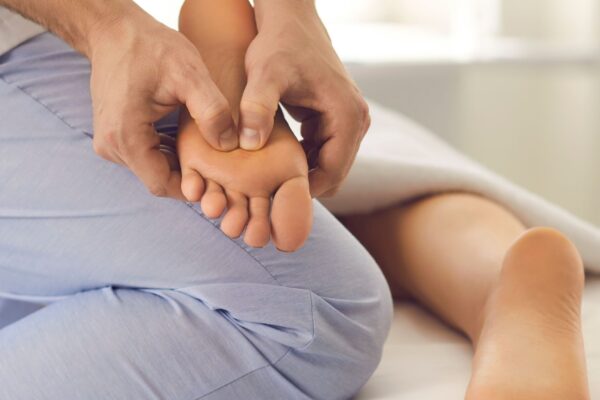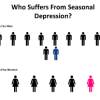- Empty cart.
- Continue Shopping
How to Prevent and Treat Corns and Bunions in Men

Corns and bunions are common foot problems that can cause discomfort and pain, affecting daily activities and overall well-being. While these issues are often associated with women due to high-heeled shoes, men are not immune. We aim to provide practical advice on how to prevent and treat corns and bunions specifically in men, helping you take steps toward healthier feet.
Understanding Corns and Bunions
Corns
Corns are small, round areas of thickened skin that usually develop on the tops and sides of the toes. They are caused by friction or pressure from shoes or other surfaces.
Bunions
Bunions are bony bumps that form at the base of the big toe, causing the toe to deviate towards the other toes. They are often the result of wearing tight, narrow shoes but can also be hereditary.
Prevention Strategies
Proper Footwear
The most effective way to prevent corns and bunions is to wear shoes that fit well. Opt for shoes with a wide toe box, good arch support, and a reasonable heel height.
Foot Measurements
Always measure both feet when buying shoes, as one foot may be larger than the other. Shop for shoes in the afternoon when feet are at their largest.
Insoles and Pads
Consider using over-the-counter insoles or pads that provide extra cushioning and support, reducing pressure points.
Regular Foot Checks
Regularly inspect your feet for any signs of corns, bunions, or other issues. Early detection makes treatment easier.
Treatment Options
Corn Removal
Over-the-counter corn removal products like pads or creams containing salicylic acid can be effective. However, consult a healthcare provider for proper diagnosis and treatment, especially if you have diabetes or poor circulation.
Bunion Relief
For mild bunions, bunion pads or splints can help alleviate pain. Anti-inflammatory medications like ibuprofen can also provide temporary relief.
Professional Treatment
For severe cases, consult a podiatrist for specialized treatment options, which may include:
- Corticosteroid Injections: For inflamed corns or bunions.
- Orthotic Devices: Custom-made insoles that provide better support.
- Surgery: As a last resort for severe bunions that don’t respond to other treatments.
Lifestyle Changes
Weight Management
Excess weight can put additional pressure on your feet, exacerbating corns and bunions. Maintaining a healthy weight through diet and exercise can help relieve symptoms.
Foot Exercises
Simple exercises like toe stretches and flexes can strengthen foot muscles, providing better support and alignment.
Finally, corns and bunions can be both uncomfortable and debilitating, but they are largely preventable and treatable. By choosing the right footwear, regularly checking your feet, and seeking professional advice for severe cases, you can take proactive steps to maintain healthy feet. Whether it’s through over-the-counter treatments or lifestyle changes, addressing corns and bunions effectively can significantly improve your quality of life.








